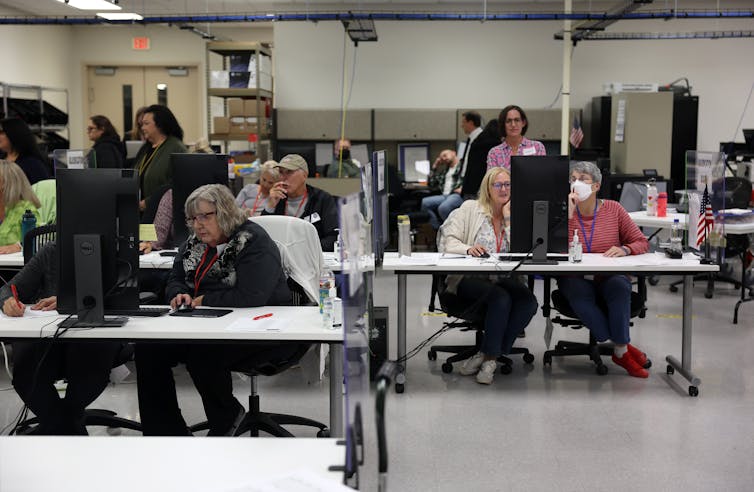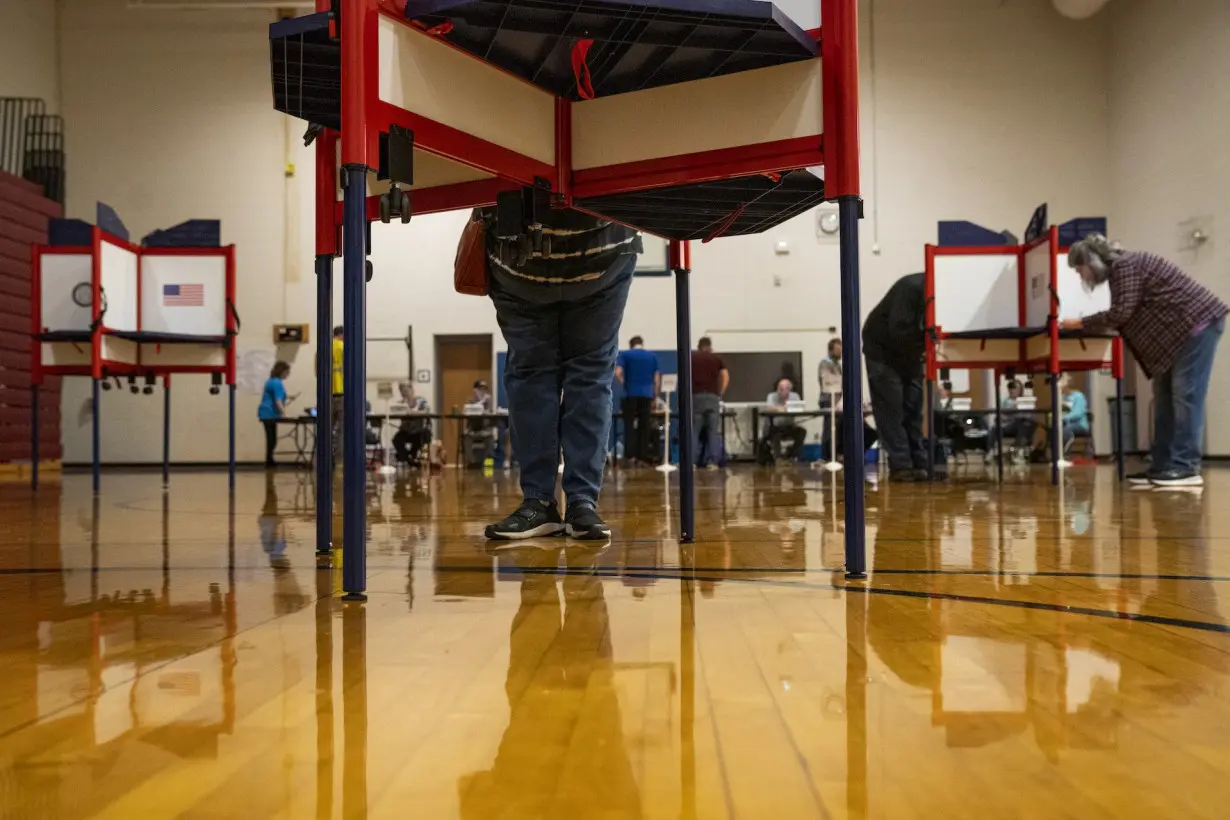Preelection polls have been inescapable early in the 2024 election year, setting storylines, as they invariably do, for journalists and pundits about the race for the presidency.
At the same time, the polls have delivered reminders that they can be less than precise indicators of outcomes — as was evident in January’s Republican caucus in Iowa and primary in New Hampshire.
In those contests, former President Donald Trump slightly underperformed his estimated polling numbers, while rivals Florida Governor Ron DeSantis in Iowa and former South Carolina Governor Nikki Haley in New Hampshire outperformed poll-based expectations.
Although Trump won both states handily, the outcomes signaled anew that polls, however ubiquitous, are best treated warily. That’s a point I emphasize in the soon-to-be-released, updated edition of “Lost in a Gallup,” my book about polling misfires in U.S. presidential elections.
Imprecision in election polling has long been recognized. As Archibald Crossley, a pioneer of modern survey research, pointed out in the early 1970s:
“If election results completely agree with those of a preelection poll, it is a coincidence.”

Contradictory polls
The early-in-2024 polls assessing a presumptive rematch between Trump and President Joe Biden have broadly signaled a close race, while on occasion presenting whiplash-inducing, contradictory indications.
Whiplash results can stem from differences in how pollsters conduct their surveys and how they analyze and statistically adjust their findings.
A striking example of whiplash effects came recently in surveys released within a day of each other. CNN, in a matchup poll released Feb. 1, 2024, estimated that Trump led Biden by 4 percentage points.
The day before, however, a Quinnipiac University poll reported that Biden was ahead of Trump by 6 points.
It deserves mention that neither CNN nor Quinnipiac distinguished itself in polling the presidential race four years ago. CNN’s final preelection survey in 2020 placed Biden ahead by 12 points; Quinnipiac’s final poll had Biden leading by 11 points.
Such results encouraged notions that Biden was headed for a landslide victory. His popular-vote margin in 2020 was 4.5 points, in what overall was the worst performance by polls since 1980.
Why pay any attention to polls?
The gap in the recent CNN and Quinnipiac poll results gives rise to an important question: Why, at such an early moment in the campaign, should voters pay any attention to preelection surveys?
Conventional wisdom, after all, has it that polls conducted many months before votes are cast possess scant predictive value, given that much can influence the direction and outcome of long-running presidential campaigns.
When considered collectively, however, polls can offer intriguing insights about a developing race, some of which are apparent only in hindsight.
On Feb. 29, 2020 — to choose a random date for purposes of illustration — the average of poll results compiled by the RealClearPolitics website showed Biden leading Trump by 5.4 percentage points. That spread deviated by less than a percentage point from Biden’s winning margin in November 2020.
At the end of February four years earlier, the RealClearPolitics polling average indicated that Hillary Clinton was leading Trump by 2.8 points. She won the popular vote by 2.1 points, while losing decisively in the Electoral College.
On Feb. 29, 2012, Barack Obama led Republican contender Mitt Romney by 4 percentage points in the RealClearPolitics polling average. Obama was reelected that year by 3.9 points.
It’s not as if Leap Day is some sort of magical moment of polling prophesy, however. Obama was ahead of Republican rival John McCain by 4.3 percentage points on Feb. 29, 2008, according to the RealClearPolitics polling average. Obama defeated McCain by 7.3 points in the November election.
So it’s prudent not to over-interpret survey results reported early in the campaign, however accurate they may prove to be.

Will the polls get it right in 2024?
Polls conducted months before an election can be valuable in identifying trends in voter preferences, and in sending signals about where trouble lurks — as they have for Biden in key battleground states, where the Electoral College may be decided in 2024.
According to polling conducted last month for Bloomberg media, Biden trailed Trump in states that typically are competitive, such as Arizona and Georgia, and was tied in Wisconsin.
Outcomes in those and other swing states in November could determine who wins the presidency — much as they did in 2020. Biden carried Arizona, Georgia and Wisconsin, but a well-distributed shift of 43,000 votes would have given Trump victory in those states, producing a 269-269 tie in the Electoral College.
The election was that close.
It’s certainly “a live issue” whether the polls will get it right in 2024, as an academic journal article noted not long ago.
The pressure is on pollsters to avoid a recurrence of the misfire in 2020, when overall they understated Trump’s support. To that end, many of them have tweaked or altered their methodologies following the 2020 polling embarrassment.
As I write in “Lost in a Gallup,” discrepancies between polling results and presidential election outcomes can have unsettling effects.
Frustration, dismay and cynicism about polling have all accompanied notable failures in taking the measure of the most-watched of all U.S. political campaigns.

W. Joseph Campbell does not work for, consult, own shares in or receive funding from any company or organization that would benefit from this article, and has disclosed no relevant affiliations beyond their academic appointment.
Source: The Conversation



 Voters cast their ballots in the race for governor in Kentucky on Nov. 7, 2023.
Voters cast their ballots in the race for governor in Kentucky on Nov. 7, 2023.